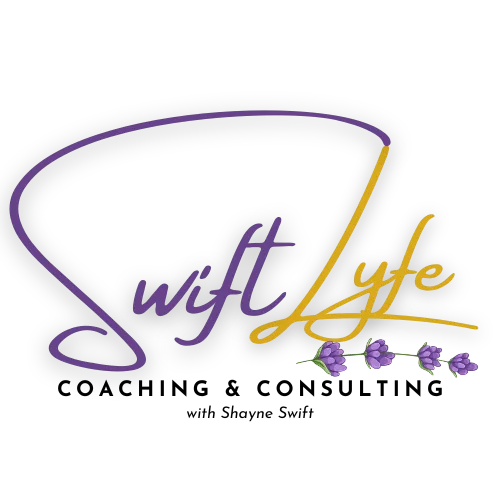In today’s workplace, fostering an inclusive and innovative culture is essential for long-term success. As organizations strive to create environments where everyone can thrive, there is growing recognition of the untapped potential of neurodivergent employees, including those with ADHD, autism, and dyslexia. However, traditional workplace structures often fail to meet the needs of these individuals.
At SwiftLyfe Coaching and Consulting, we understand that creating supportive workplaces requires more than surface-level accommodations. It demands a deeper understanding of what motivates neurodivergent employees and strategies tailored to unlock their full potential.
Unmasking Neurodivergence: Motivators as the Key to Success
For neurodivergent employees, rigid expectations, time blindness, and misaligned workflows often lead to frustration and disengagement. Many adopt layers of masking—concealing their true selves to fit in. This challenge is particularly pronounced in communities of color, where ADHD is frequently underdiagnosed, misunderstood, and compounded by societal pressures.
Motivators such as autonomy, creativity, and emotional safety are often critical for neurodivergent individuals. Examples include:
- Autonomy and Flexibility: Allowing control over workflows reduces overwhelm and increases engagement.
- Purpose and Impact: Connecting work to meaningful outcomes fosters intrinsic motivation.
- Recognition and Positive Reinforcement: Frequent acknowledgment boosts confidence and mitigates the effects of Rejection Sensitive Dysphoria (RSD).
These motivators align with broader insights into ADHD strengths, such as creativity, high empathy, and problem-solving abilities, which can flourish in the right environments.
Insights from Assessment 24×7’s Motivators
The Motivational Style Assessment identifies seven dimensions of motivation: Aesthetic, Altruistic, Economic, Individualistic, Power, Regulatory, and Theoretical. These dimensions offer a framework for aligning workplace strategies with neurodivergent employees’ intrinsic motivators:
- Aesthetic (Harmony and Form): A drive for balance, creativity, and visual or emotional harmony.
- Altruistic (Helping Others): A drive to support and serve others altruistically.
- Economic (Practical Returns): A focus on efficiency, practicality, and tangible outcomes.
- Individualistic (Uniqueness and Independence): A desire for autonomy, self-expression, and freedom.
- Power (Influence and Control): A drive for leadership, control, and decision-making opportunities.
- Regulatory (Order and Structure): A preference for routine, organization, and predictability.
- Theoretical (Knowledge and Discovery): A passion for learning, intellectual growth, and uncovering the truth.
By understanding these motivators, organizations can create environments that foster engagement and empower neurodivergent employees.¹
Limitations of Motivators and Self-Assessments
The Motivators assessment is not a clinical diagnostic tool and was never intended for use in psychotherapy, psychology, or psychiatry. It is important to recognize that self-assessments like DISC and Motivators are influenced by various factors, including an individual’s self-awareness, focus, openness to engaging with the assessment, comfort with self-disclosure, and other contextual or cultural variables. Additionally, responses may be shaped by differing interpretations, personal experiences, or external pressures, which should be acknowledged when considering the results.
For individuals with neurodivergence, these factors may differ due to unique cognitive processing styles or experiences, potentially affecting the results. Recognizing these nuances highlights the importance of using such tools as one element within a broader, culturally competent strategy for understanding and supporting employees. Organizations must adopt a holistic approach that goes beyond assessments, combining them with open dialogue, individualized accommodations, and continuous learning to build truly inclusive environments.
Leveraging Motivational Insights for Workplace Transformation
- Identify and Map Core Motivators:
Tools like the Motivators Assessment can help uncover preferences such as autonomy, variety, or collaboration. For example:- A neurodivergent employee motivated by creativity may excel in roles requiring innovation and dynamic thinking.
- Someone who values structure may thrive with clearly defined expectations and consistent feedback loops.
- Redesign Roles and Workflows:
Aligning roles with motivators reduces friction and amplifies engagement:- Employees motivated by autonomy may excel with flexible schedules or remote work.
- Those who value collaboration can thrive in team settings that prioritize inclusion and mutual respect.
- Address Task Initiation Challenges:
Neurodivergent employees often face barriers such as dopamine dysregulation or executive dysfunction. Effective strategies include:- Breaking Down Tasks: Divide larger projects into smaller, manageable steps.
- Body Doubling: Encourage shared accountability by pairing employees during focus sessions.
- Time Blocking: Schedule tasks with clear start and end times to combat time blindness.
- Foster Strength-Based Collaboration:
Create teams that complement each other’s strengths. Pair individuals motivated by creativity with those who value precision and structure to enhance outcomes and foster synergy. - Train Leadership and Teams:
Inclusive workplaces require informed leaders. Educating managers about neurodivergent challenges equips them to create supportive environments that reduce masking and encourage authenticity.
Actionable Steps for Long-Term Inclusion
- Incorporate Motivation Mapping into Hiring and Onboarding: Identify motivators early to align roles with individual drivers, ensuring a strong foundation for success.
- Co-Design Personalized Accommodations: Collaborate with employees to implement adjustments tailored to their needs, such as flexible deadlines or alternative communication methods.
- Provide Regular Feedback Loops: Frequent check-ins enable managers to revisit motivators and refine approaches, ensuring ongoing alignment with individual needs.
- Celebrate Wins and Amplify Engagement: Highlight achievements and emphasize the unique value neurodivergent employees bring to your team.
Motivators in Marginalized Communities
The intersection of neurodivergence and marginalized identities often intensifies workplace challenges. For Black women, societal expectations of strength and perfectionism exacerbate the burden of undiagnosed or untreated ADHD. Recognizing motivators such as emotional safety, visibility, and equitable treatment is essential to fostering inclusion for these individuals.
The Ripple Effect of Inclusive Workplaces
When organizations embrace motivational insights, the impact extends beyond individual success. Teams become more cohesive, productivity soars, and innovation thrives. Neurodivergent employees, when empowered, redefine workplace culture by modeling resilience, adaptability, and unique problem-solving approaches.
At SwiftLyfe Coaching and Consulting, we’ve seen firsthand how addressing motivational drivers transforms individuals and organizations. By fostering environments that prioritize autonomy, creativity, and emotional safety, we unlock the strengths of neurodivergent talent while positioning organizations as leaders in workplace inclusivity.
Ready to Empower Your Team?
SwiftLyfe Coaching and Consulting offers tools and expertise to help your organization leverage motivational insights for neurodivergent success. From assessments to personalized coaching, we’ll guide you in creating an environment where every employee can excel.
Contact us to start building a workplace where inclusion and innovation thrive.
¹Insights derived from the Motivators Assessment, a tool provided by Assessments 24×7.


